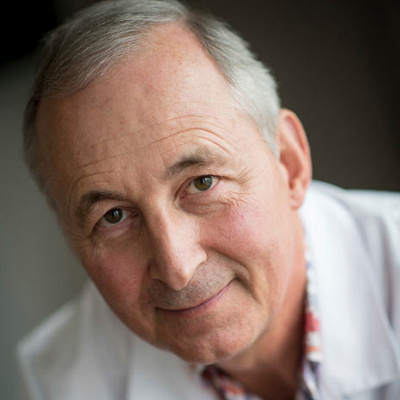To give our readers the chance to get to know more about the people involved in the day-to-day life of our hospital, we are starting a series of interviews called "3 questions to".
1. What is the first thing you do when you get to work ?
Put on my white coat and open my diary. As soon as I am at work, I am there for my patients, either for consultations in my surgery, for ward visits (dressings), or for operations in theatre. I can understand why an operation and its aftermath can cause patients anxiety, which is why I try to give patients my time, all through the day, in order to reassure and support them.
2. What would you say to a student who wanted to follow the same career path as you ?
Being an orthopaedic surgeon requires more than just learning from books. Of course, it is very important to understand the anatomy and the surgical techniques, but surgery is a kind of craft requiring a long apprenticeship, and this is somewhat out of step with the modern way of life, where everything has to be rapidly accessible. In particular, it is during training, when you are in contact with other mentoring surgeons and observing how they operate, that you acquire experience, develop your skills and perfect you operating technique. It is vital that peers swap their expertise and important to travel so that you learn from more than one source.
I would also remind budding orthopaedists that this job is similar to that of a mechanic, requiring precision, mastery of the techniques, and a lot of medical knowledge; but you must not forget that it is a human mechanic. Of course, good orthopaedic surgeons need to have excellent techniques and be constantly improving, but they also need to offer a willing ear to their patients. You will always continue to learn from your patients, all the way through your career.
3. How does your work affect your day-to-day life in specific ways ?
The meticulousness that comes with my job as a surgeon (strict operating protocols, precision when it comes to the operation itself and so on) has an effect on my behaviour in my everyday life. I have become very precise and aware of the smallest details – to the point of being a bit of a stickler, sometimes to the annoyance of my family and friends [laughs].
During the year, I try to get away so I can indulge in one of my passions: flying a glider in places with breathtaking scenery like the Alps in Europe or Namibia in Africa. At the end of the day, flying a plane and operating on a patient have quite a lot in common. Before taking off, just like before an operation, there is a check list to be ticked off – the condition of the plane, the instruments and the take-off procedure – which is similar to the check we make on the identity of the patient, the theatre procedures, etc. This precision and awareness of detail is limited to my work environment and flying. I believe in being able to laugh at yourself and appreciate a good sense of humour.

Dr. Jean-Philippe Corsat
